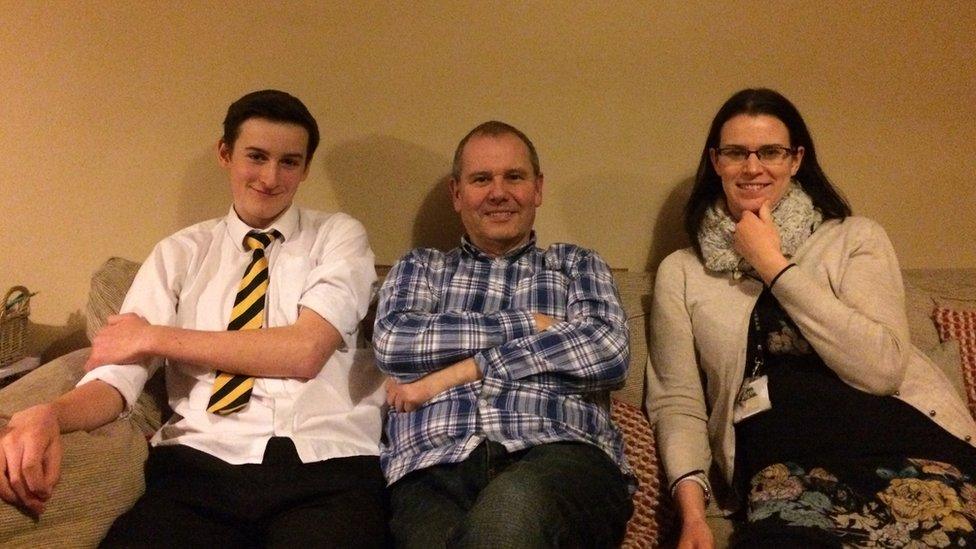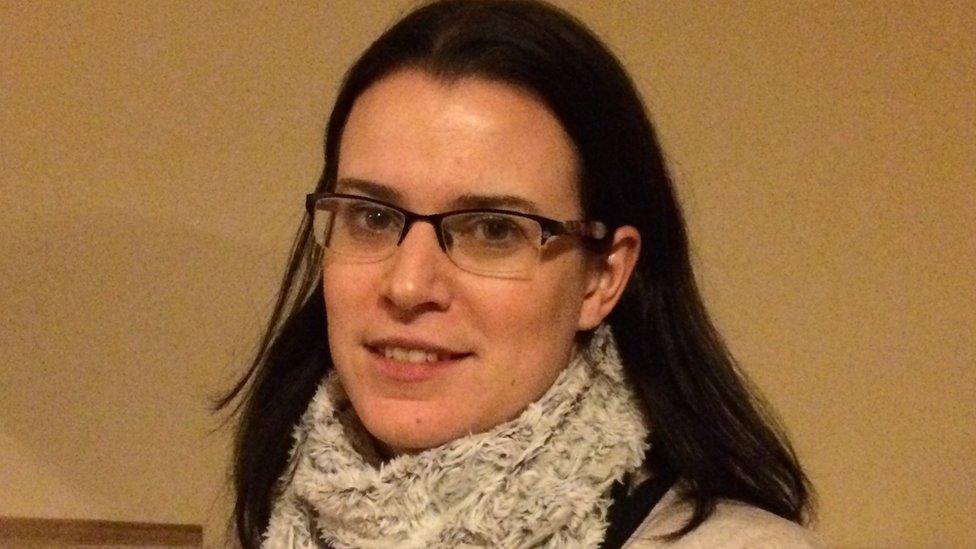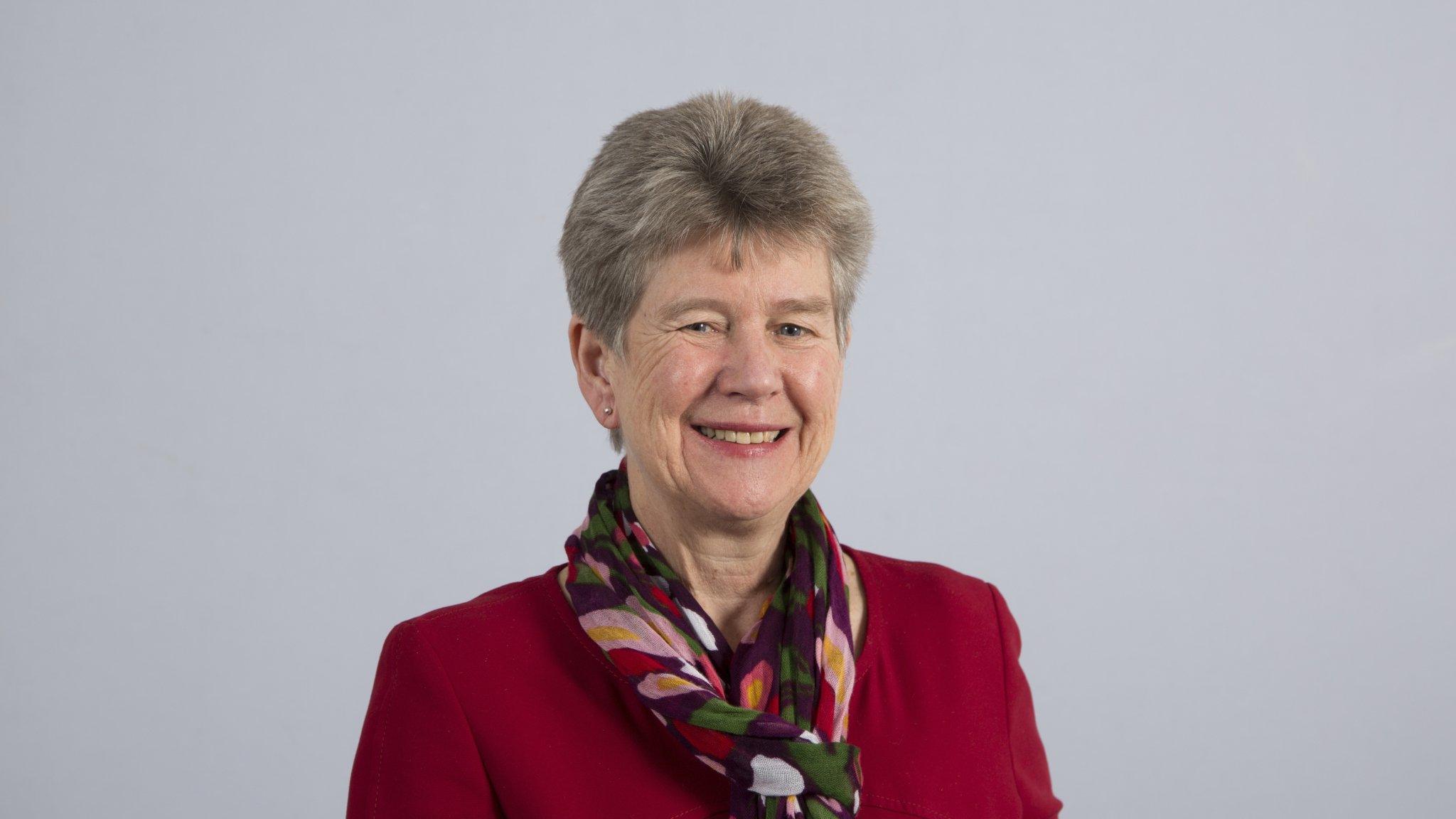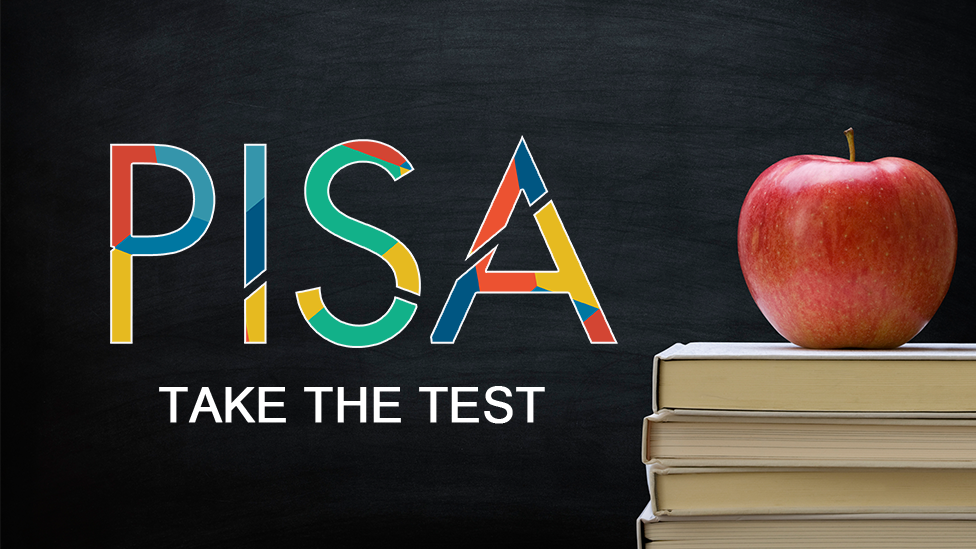Literacy and numeracy tests: a Newport family's view
- Published

Callum Hall, his grandfather John Healy and mother Kath all have different views of the tests Welsh pupils face
One of the by-products of Pisa international comparisons in Wales has been the introduction of annual literacy and numeracy tests.
Introduced in 2013, it was hoped they would help improve matters after the 2010 rankings saw Welsh pupils falling behind.
But what effect have the tests had in the classroom, and will they work?
We asked three generations of a family from Newport.

THE GRANDPARENT

John Healy was head teacher at two primary schools in Monmouthshire before helping to improve school performance across south east Wales.
He says the "testing culture" in Wales is affecting some pupils' wellbeing.
"I would define the action that was put in place as almost punitive," he said.
He feels the "richness" of the curriculum has been "put on hold" to improve Pisa performance and says measuring how far individual pupils have improved would be more beneficial.
"Some children come into school and they're not fully toilet trained with significant speech and language difficulties," he said.
"They can make enormous progress in schools with the good work that teachers do, but that's not necessarily measured because they might not meet the 'age norm' expectation."
After several decades in the education system, does he think the current, regular testing system will improve our Pisa performance?
"Yes" he says, with a wry smile, but there might be a catch.
"You could argue that we may well improve our test performance... but does that give us better all-round individuals?
"Creative children, children who are going to be good digitally, entrepreneurial children who are going to develop our businesses in future?
"Or are we going to have a generation of disaffected pupils who have become disengaged, disillusioned and demoralised by the effect of continual testing year after year?
"That's the educational diet they've been brought up on, and we need to ask ourselves are we producing well rounded individuals who will be life-long learners."

THE PUPIL

Sixteen-year-old Callum is in Year 11 in school and like other pupils across Wales he is now tested at the end of each year on numeracy and literacy.
He said: "When I was in Year 8, the teachers were told they had to integrate numeracy into all their lessons... it wasn't really beneficial, it was kind of forced upon us and the teachers.
"Then, in Year 9, quite of lot of emphasis was put on [the annual tests] by the teachers.
"In the weeks leading up to the national tests, our normal curriculum was dropped and we focussed solely on doing Pisa-style questions, external.
"Our teachers were worried that we were going to be selected, so we went through a fair bit of how the Pisa test worked and what they were.
"I'd say there are a fair few people who do get worried and anxious about these tests, some who did work harder and paid attention due to the test, but there were also people who didn't really bother.
"I think it [testing] is useful in high school, comprehensive school, it helps us prepare for GCSEs, but I don't really see the point in tests being used in primary school."

THE PARENT

Callum's mother, Kath Hall, says her son has always achieved the grades expected of him, but feels there are more tests than in her day, and more data for parents to consider.
"There seems to be a lot more tests, not just in the summer... there always seems to be one coming up," she said.
"It does seem very confusing as a parent to understand what all these levels mean really... I do go to each parents' evening and ask what do these numbers mean, what level should he be at?
"It's just kind of overwhelming as a parent."
Asked if she takes any reassurance from such detailed information about her sons's education, she said: "Not a huge amount. I find it very confusing. What is the data being used for?
"If it's being used to say Wales is underperforming in comparison to England, are we comparing like with like?
"We've got a very different curriculum in Wales - we've got the Foundation Phase, we've got Welsh language schools, it's not a direct comparison to me."
- Published5 December 2016

- Published5 December 2016

- Published4 December 2016

- Published5 December 2016

- Published3 December 2013
